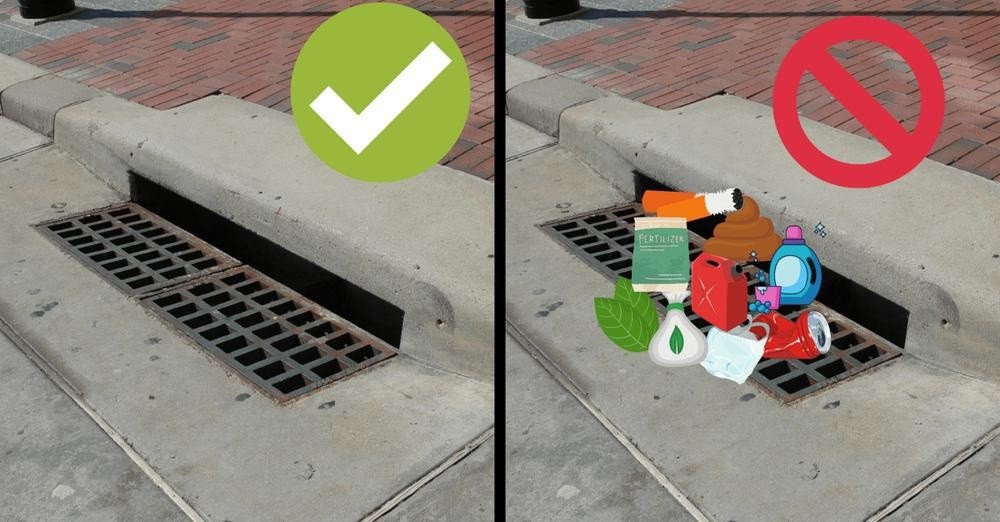The City of Sugar Land’s stormwater system

If you think about all the places where you interact with water, you realize just how essential it is for Sugar Land. With the mighty Brazos running through the city limits, effective storm water management is vital to ensuring that Sugar Land maintains high water quality, both inside and outside homes.
Learn more on what you can do to help protect the City’s stormwater system below.
What is stormwater?
Stormwater is a general term referring to water that falls from the sky as rain or melts from snow. Once water hits the ground, it permeates the land around it. Any excess water that doesn’t permeate into soil flows into ponds, lakes, rivers, and retention ponds.
Environmental Manager Georgia Tate oversees the stormwater regulation for the City, working with the Public Works and Engineering departments to control where excess water flows and how it affects Sugar Land residents.
“It’s important that residents and local business owners understand the role stormwater plays in our community,†Tate said.
Why does the City care about stormwater?
Stormwater is different from water you may see in your home in a bathtub or sink. Water from the bathtub, for example, drains to sewer collection systems around the city. Stormwater, which flows into storm drains, is not treated or filtered for pollutants. The contaminated water flows directly into drainage ditches and lakes that feed Oyster Creek and the Brazos River. Pollutants in our city limits can harm wildlife and their habitats.
What kind of things pollute stormwater?
Most pollutants fall into three categories: litter/garbage (cigarette butts, cans, food wrappers, plastic or paper bags), natural pollution (tree leaves, yard clippings, animal feces), and chemical pollution (fertilizers, oil, detergents).
What are some things I can do as a resident to protect the stormwater system?
Residents play a vital part in the stormwater management process. Residents can protect Sugar Land’s stormwater system by:
*Not littering
*Making sure yard waste is properly disposed of
*Cleaning up after your pet and properly disposing of waste
*Not dumping pool water into storm drains
*Limiting the amount water you use to wash cars and water plants
*Use lawn and garden fertilizers properly
Tate said that thinking about what kind of water is going down storm drains is important to controlling stormwater pollution in Sugar Land.
“We need the help of residents in order to make the city’s stormwater management successful,†Tate said.
Are there ways I can help?
Yes! The City and Keep Sugar Land Beautiful are looking for volunteers for the Storm Drain Marking program. Volunteers will work as a team to tag markers onto designated city storm drains, as well as help keep them clean and debris free. To volunteer, head to
kslb.org/programs/st orm-drain-marking/. 


